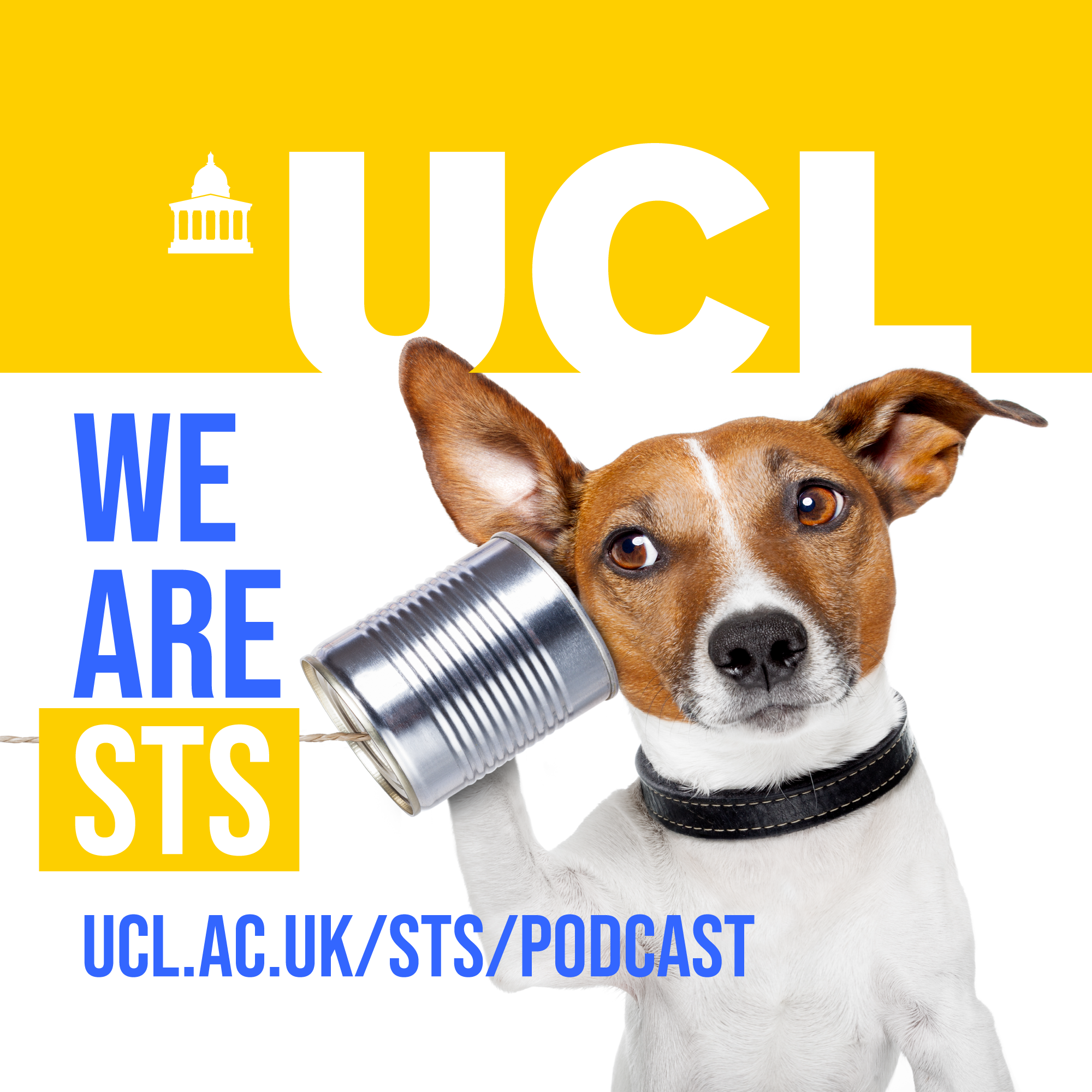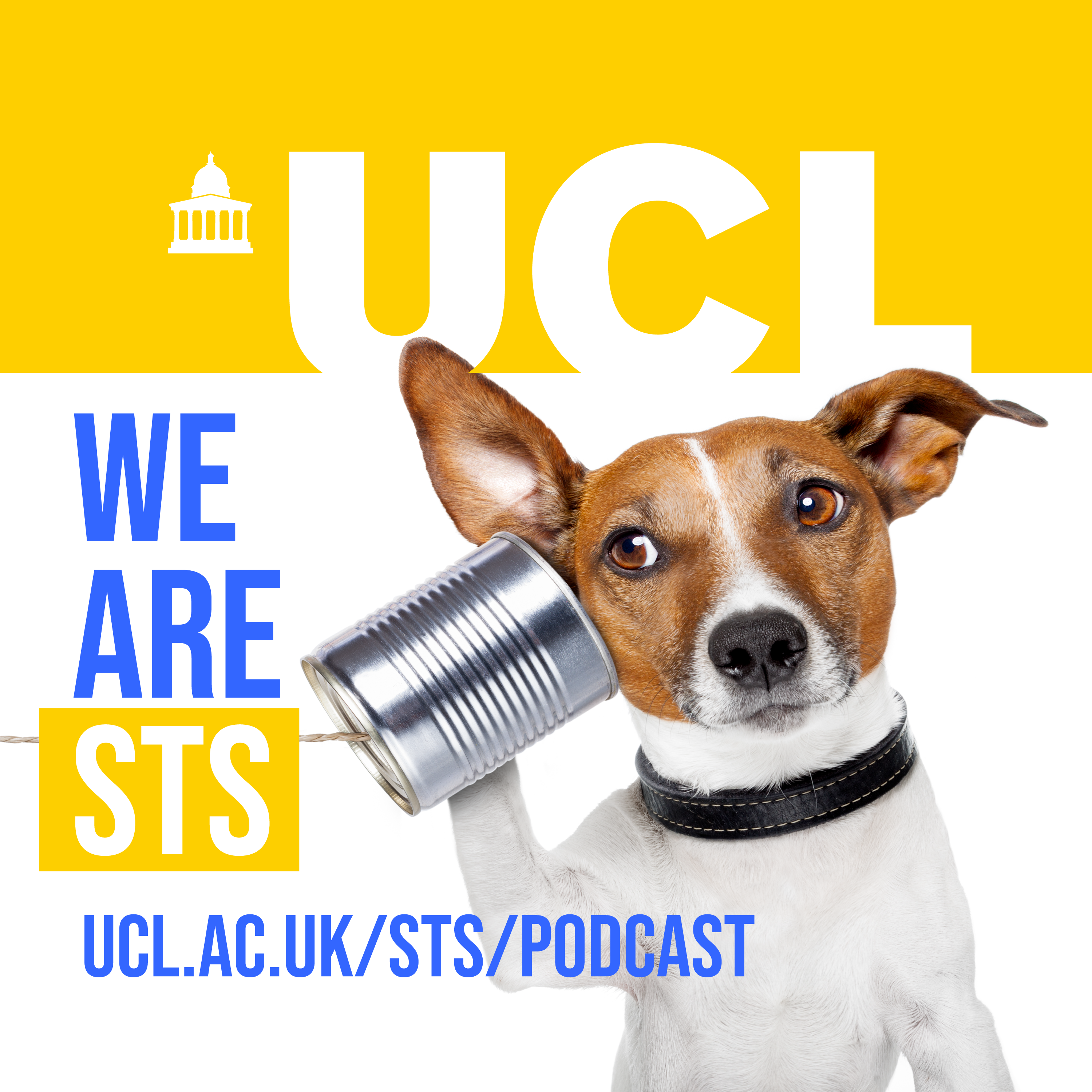WeAreSTS

WeAreSTS
Podcast Description
Science and Technology Studies (STS) combines a wide range of subjects, including: history of science, philosophy of science, sociology of science, science policy, and science communication. WeAreSTS is an official podcast of the Department of Science and Technology Studies at University College London (UCL), hosted by Professor Joe Cain | ucl.ac.uk/sts/podcast
Podcast Insights
Content Themes
The podcast covers a wide array of topics within science and technology studies, including history and policy of science, ethics in technology, and the impact of social media on scientific discourse. Notable episodes examine the geopolitical implications of technology standards and the influence of anti-aging marketing on youth, exploring how cultural narratives shape scientific practices and societal values.

Science and Technology Studies (STS) combines a wide range of subjects, including: history of science, philosophy of science, sociology of science, science policy, and science communication. WeAreSTS is an official podcast of the Department of Science and Technology Studies at University College London (UCL), hosted by Professor Joe Cain | ucl.ac.uk/sts/podcast
What can you do with a degree with a BSc in Sociology and Politics of Science? Joe talks with Isobel Lim (Sociology and Politics of Science BSc 2022) about life after her UCL degree with us here in STS. She wrote a unique dissertation on Pokemon Go. That influenced her to take up a post with a Indonesian tech startup. There, she gained valuable experience in the collectibles and esports sector.
With a long-standing passion for computer games, Isobel transitioned into the rapidly growing esports industry. She highlights Pokemon’s entry into esports in 2022 with Pokemon Go and Pokemon Unite. The industry has been growing rapidly, now with immense demand, rapid ticket sell-outs, and global events. Esports have transformed from a niche hobby into a major spectacle.
Isobel finds many ways to apply her interdisciplinary interests to the eSports universe. Data analytics was an important start for her. She finds her studies in understanding human behaviour and identifying patterns to be invaluable for navigating the industry’s complexities. Her science communication training has been vital for understanding how to expand engagement with fans and identify patterns for monetising this booming market. Interdisciplinary is one of the skills developed during her degree that she covets.
Featuring
Interviewee
Isobel Lim (Sociology and Politics BSc 2022)
Host
Professor Joe Cain
Music credits
“Rollin at 5” Kevin MacLeod (incompetech.com)
Licensed under Creative Commons: By Attribution 4.0 License
http://creativecommons.org/licenses/by/4.0/
Podcast information
WeAreSTS is a production of the Department of Science and Technology Studies (STS) at University College London (UCL). To find out more, or to leave feedback about the show:

Disclaimer
This podcast’s information is provided for general reference and was obtained from publicly accessible sources. The Podcast Collaborative neither produces nor verifies the content, accuracy, or suitability of this podcast. Views and opinions belong solely to the podcast creators and guests.
For a complete disclaimer, please see our Full Disclaimer on the archive page. The Podcast Collaborative bears no responsibility for the podcast’s themes, language, or overall content. Listener discretion is advised. Read our Terms of Use and Privacy Policy for more details.